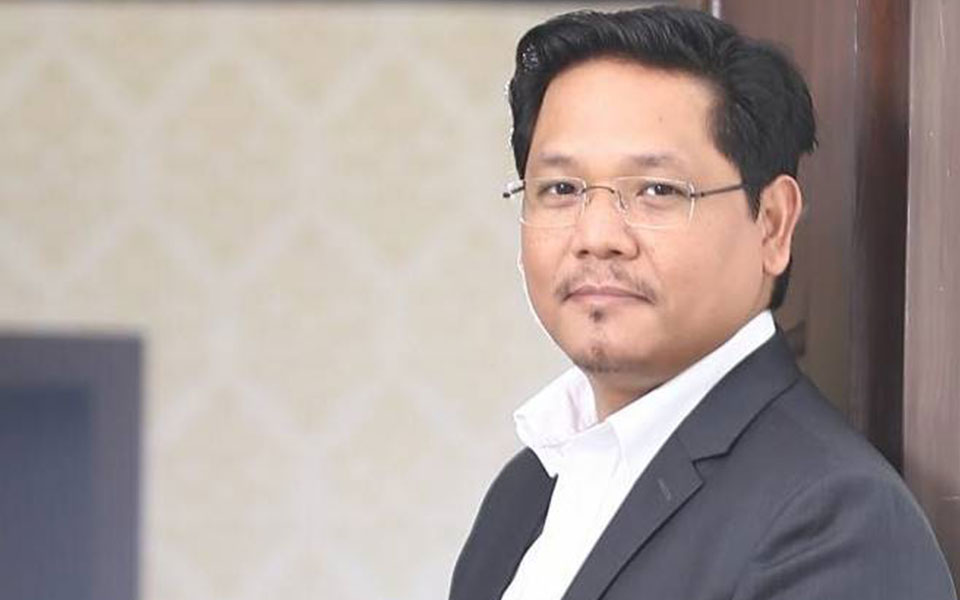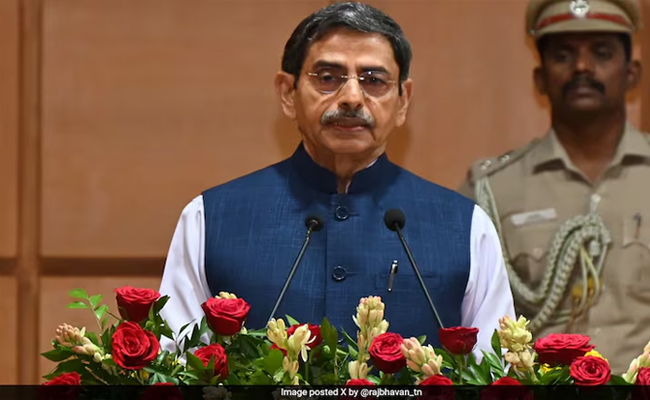New Delhi, June 17: Admitting increasing plastic consumption is a rising threat to his state, Meghalaya Chief Minister Conrad Sangma said he had personally quit using plastic as well as barring it from his office.
Asserting that it will take some time to address the plastic menace as people are use to using it, India's second-most youngest Chief Minister, who hails from one of the greenest and cleanest states, says he believes in leading by example and has adopted a top-down approach.
He also raised concern over lack of mechanism of collecting waste plastic from rural and remote areas.
"We can begin by simply saying no to the plastic bottles and carry aluminium or steel bottles," said Sangma, who was here to attend NITI Aayog's Governing Council meeting chaired by the Prime Minister.
He asserted that its very important to keep the momentum against plastic moving and not confining it to the Environment Day alone.
He also said that the state government is stressing upon recycling.
Asked if his state is suffering from plastic waste, Sangma said: "Absolutely".
"If you look at most of our towns or cities, you will see that a lot of streams are choked up because of the plastic which is there. It is a matter of extreme concern for us.
"In the rural areas there is no mechanism to actually check the use of low grade plastic, that's a big concern... we are realising the challenges and also taking steps to assure that the issues are take care off," he said.
Speaking of plastic waste alone, approximately 900,000 tonnes of PET -- used to make soft drink bottles, furniture, carpet, paneling, etc. -- was produced in India in 2015-16, as reported by the National Chemical Laboratory.
The issue was bought under light with the World Environment Day-2018 on June 5 hosted by India with theme "Beat plastic pollution".
Let the Truth be known. If you read VB and like VB, please be a VB Supporter and Help us deliver the Truth to one and all.
Gurugram (PTI): A petrol pump worker died after an SUV rammed into his motorcycle in the Sushant Lok area here, police said on Thursday.
The accused driver fled the scene, leaving the vehicle after the accident. An FIR has been registered at the Sushant Lok police station, they said.
According to police, the accident occurred on Wednesday afternoon when Mukesh was travelling from Sector 44 to Sushant Lok on Vyapar Kendra Road for some work.
Near Vyapar Kendra, a white Thar coming from the wrong side at high speed hit his motorcycle head-on, leaving him critically injured, they said.
The driver fled the scene, leaving the vehicle behind, police added.
Eyewitnesses claimed the vehicle had no number plates either at the front or rear.
Locals took Mukesh to a private hospital, where he died during treatment, police said. He was a resident of Rohta Patti in Palwal and worked at a petrol pump in Sector 44.
An FIR was registered against the unidentified driver, based on a complaint lodged by his brother Ashok. The body was handed over to the family after a post-mortem on Thursday, police said.
“The Thar vehicle has been seized from the spot. CCTV footage from the area is being examined, and the driver will be arrested soon,” a Gurugram police spokesperson said.





